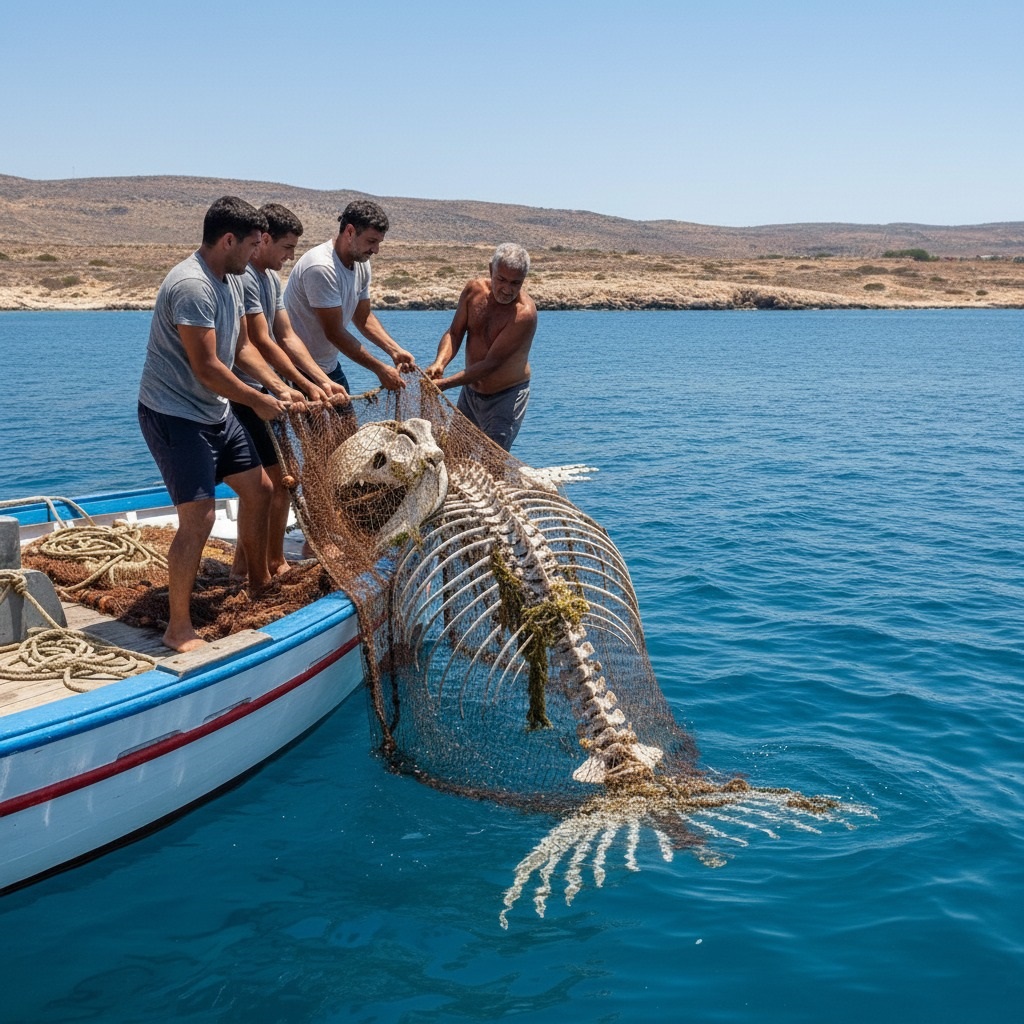Discovery in the Aegean: Fishermen Unearth an Ancient Leviathan’s Remains

The Aegean Sea, a cradle of civilization and a body of water steeped in myth and history, has once again yielded a secret from its depths. This time, the discovery isn’t a shipwreck laden with amphorae or a submerged ancient city, but something far more primeval: the remarkably preserved skeleton of a colossal marine creature.
The astounding find occurred off the rugged, sun-baked coast of a Greek island, believed to be near the Cyclades or Dodecanese archipelago, a region renowned for its deep blue waters and stark, beautiful landscapes. Local fishermen, whose families have plied these same waters for generations, were engaged in their daily routine of hauling in nets when they encountered an unprecedented resistance. “It felt like we had caught the whole seabed,” recounted one of the fishermen, a seasoned seaman with decades of experience.
As the heavy net slowly emerged from the cerulean depths, it revealed an sight that sent a ripple of awe and disbelief through the crew. Entangled within the coarse mesh was not a monstrous fish, but the skeletal remains of a truly enormous marine animal. The distinct, elongated vertebral column, massive ribs, and impressive caudal fin structure pointed to a creature of immense size, far beyond anything typically found in the Aegean today.
Word of the discovery quickly reached maritime archaeologists and paleontologists, who descended upon the scene with a mix of scientific rigor and palpable excitement. Early assessments suggest the skeleton could belong to a prehistoric whale species, possibly dating back thousands or even millions of years. The state of preservation, while allowing for some marine growth, is exceptional, providing a unique opportunity for detailed study.
This unexpected unearthing has ignited a fervent discussion within the scientific community. The Aegean, though thoroughly explored for its historical artifacts, has fewer reported paleontological marine finds of this magnitude. This discovery could offer invaluable insights into the ancient marine ecosystems of the region, shedding light on the types of megafauna that once thrived in these waters. It may even challenge existing timelines of species distribution and evolution in the Mediterranean basin.
“This isn’t just a biological find; it’s an archaeological one in the broadest sense,” explained Dr. Elara Vance, a leading maritime archaeologist from the Hellenic Ministry of Culture. “Every element of the Aegean’s past, from human habitation to the creatures that swam in its seas, contributes to our understanding of this unique historical and ecological tapestry. A find like this could rewrite chapters in both marine biology and regional history.”
As the delicate process of retrieving and studying the skeleton begins, the fishermen of the Aegean are once again reminded that their ancient sea holds mysteries far deeper than they could ever imagine, connecting them not just to their ancestors, but to the primeval world itself. The leviathan’s bones, now brought to light, whisper tales of a forgotten era, beckoning us to listen closely to the stories etched in the very fabric of our planet.
